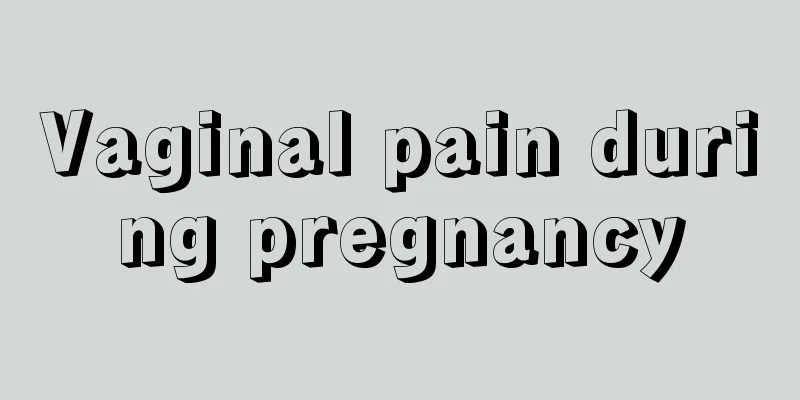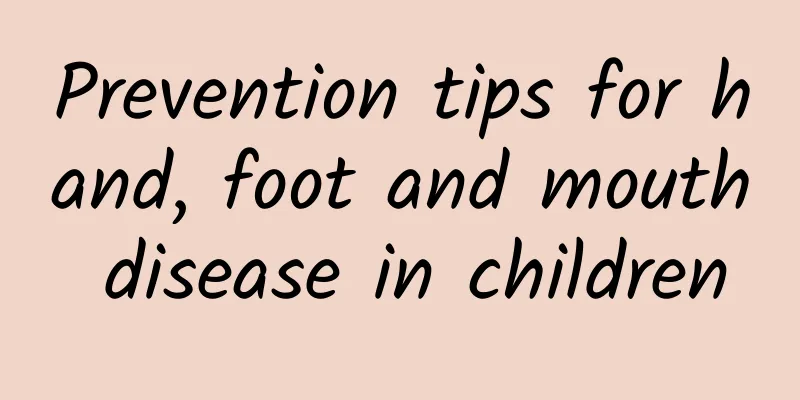When will menstruation come after giving birth?

|
It is common knowledge that women do not have menstruation during pregnancy, but how long will it take for a woman to have menstruation after giving birth? Even women who have given birth cannot clearly tell. Because each woman has a different physique and recovery degree, the timing of menstruation after giving birth will also be different. So when does a woman who has just given birth get her period? Please see the following introduction for details. The resumption of menstruation after childbirth is a natural physiological phenomenon. How long after giving birth will menstruation come? This is a common question. The time of recovery may be early or late. Some women may have menstruation as early as one month after the baby is one year old, while others may not recover until the baby is one year old. From a medical point of view, based on the tissue morphology of the endometrium, the ovaries may be able to ovulate as early as 33-42 days after delivery. In addition, the presence of a corpus luteum after ovulation can also be observed 6 weeks after delivery. However, it is sometimes difficult to clinically determine the exact time of the first menstrual period after delivery, and a small number of women will begin to have intermittent bleeding of small to moderate amounts immediately after delivery. For new mothers who breastfeed their babies, ovulation and menstruation will resume later, and some may not have their period until a year later. For most people, their first menstrual period is heavier than usual, but their second period becomes normal, so no treatment is needed. When menstruation comes, the amount of milk a breastfeeding mother produces generally decreases, and the quality of the protein and fat in the breast milk also changes slightly, with the protein content being higher and the fat content being lower. This milk sometimes causes indigestion symptoms in babies, but this is a temporary phenomenon and will return to normal after the menstrual period. Therefore, mothers do not need to stop breastfeeding whether during or after menstruation. In the above content, we know approximately when a woman will have her period after giving birth. Of course, because each woman has different nutrition after giving birth, resulting in different recovery conditions, there may be special cases of delays or advances, which are not a problem. If you haven't had your period one month after giving birth, you can just take some more nutritional supplements. |
<<: Preparations for pregnancy at an advanced age
>>: Why do women have peculiar smell in their private parts?
Recommend
What to eat for common gynecological diseases clinical manifestations
If I have gynecological diseases such as pelvic i...
These four foods are excellent for nourishing yin and tonifying the kidneys!
Under the influence of some pressure, more and mo...
How to clean your lower body after giving birth?
How to clean the lower body after childbirth is a...
Is it normal for nipple formers to suck out water?
Nipple braces, also known as inverted nipple brac...
What should I eat during confinement to lose belly fat?
During pregnancy, in order to meet the developmen...
How to treat cervical precancerous lesions
Cervical cancer is a relatively serious disease c...
Very little menstrual flow after medical abortion
Medical abortion is for women who are still in th...
What causes back pain during menstruation
When women have their period, their bodies will e...
Will a small uterus rupture during pregnancy?
Most female patients with a small uterus are suff...
What does it mean when a guy is hot and cold? Does it mean he likes you when he is hot and cold?
There are many reasons why boys are hot and cold,...
Menstruation is delayed for one day and one is dark and one is shallow
If a woman does not use proper contraceptive meth...
Decreased fetal movement at 26 weeks
When a pregnant woman feels the fetal movement fo...
What is the Luteal Phase? Women need to know this knowledge
Many women do not understand what the luteal phas...
What should women pay attention to in terms of health and wellness
In fact, everyone is very concerned about women&#...









